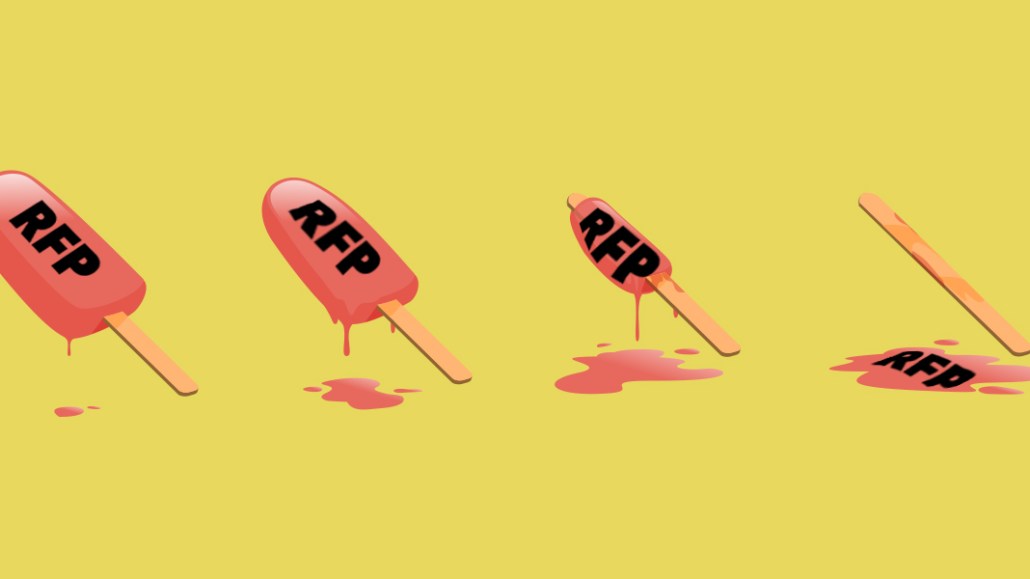Secure your place at the Digiday Media Buying Summit in Nashville, March 2-4
‘Permission to think long term’: The Atlantic digs for deeper, smarter client partnerships

The Atlantic is the latest publisher striking more consultative relationships with its advertisers, as the trend for fewer, bigger partnerships gains pace.
This week it’s launching Atlantic Brand Partners tying together various capabilities from the wider company. The goal: Deeper partnerships generating more revenue from longer-term relationships and repeat clients.
The new brand knits together the capabilities from its creative studio Atlantic Re:think, its brand strategy firm Atlantic 57, events via AtlanticLIVE and Atlantic Ventures, a newly-formed editorial initiatives group. Forming the starting point of its work with brands is a research-led content hub for marketers, Forces of Influence, which examines the changing relationships between brands and consumers.
Publishers like Bloomberg Media have been offering more consultative services for their advertisers over the last few years beyond core branded content services. Providing more integrated campaigns that tie in different capabilities moves publishers further upstream, closer to the decision making, rather than working ad hoc on campaigns. Ultimately, publishers can be more efficient at generating revenue with fewer partners.
The Atlantic holds up its work with insurance company Allstate as an example of how it’s forged long-term, smarter relationships over five years that brings together the capabilities of the whole of Atlantic Brand Partners. The Renewal Project from Allstate aims to tell the stories of individuals and organizations who are solving problems in their communities.
Atlantic 57 developed a brand voice, visual identity system and social newsroom for the launch of the Renewal Project platform, Atlantic Re:think raised the profile of the project through articles, videos, and ad units. AtlanticLIVE created The Renewal Summit series, a series of editorial events in cities across the country. It’s also recently hosted the fifth Renewal Award.
One in 10 people in the U.S. have heard of The Renewal Project, answering the core objective of raising awareness of the venture, the publisher said.
Before coronavirus, the publisher interviewed marketers and clients about their needs. It emerged that “working across multiple vendors, publishers and agencies becomes very fragmented, it takes a lot of work to maintain, there’s no cultural thread or consistency across partnerships,” said Stephanie Parker, executive director marketing, who is leading Atlantic Brand Partners. “When the pandemic hit, that accelerated and the pain points felt more painful. We [now] operate an end-to-end solution, that’s an important distinction.”
Atlantic Brand Partners will account for all The Atlantic’s business-to-business revenue, which is currently two-thirds of The Atlantic’s overall revenues. The publisher knows it has more success with partners when it works across multiple disciplines like branding, creative and digital versus just media.
A small number of accounts drive a healthy portion of its revenues, the publisher said, although it wouldn’t say which brands. Success is measured over months and years rather than weeks and quarters. The average value of what it charges for this type of work has grown each year as production capabilities and work processes improve. The publisher wouldn’t say exactly how this method of working has grown its revenue.
Over the last few months, The Atlantic has whittled down prospective partners. Previously, it was open and responsive to all in-bound requests. Now, it’s selected 250 specific brands that it will target.
A lot of publishers aren’t in the position — in the midst of the pandemic —to turn away revenue, regardless of ethos. Publishers “need to move away from anything for a buck for this to work,” said Rob Ristagno CEO, The Sterling Woods Group. “They need to move away from buzzwords and toward results. How is this going to be a higher ROI option — that I can measure — than buying ads on Facebook or Google?”
Broadly, the pandemic has thrust marketers down the funnel towards ads that deliver measurable performance. The Atlantic’s proposition may be at odds with this trend, but industry onlookers applaud it for taking a longer-term view.
“I do not know if we have seen bigger partnerships though, fewer yes, but it’s difficult for any CMO right now to justify big branded content partnerships,” said Kunal Gupta, CEO of native ad platform Polar.
The gains in branded content and subscriptions come after the publisher has weathered tough quarters in advertising and events. In May, The Atlantic laid off 68 people, about 20% of staff, including most of its video team and its events staff, citing a “bracing decline” in advertising.
The publisher is “pleasantly surprised” about the bounceback of business in the third quarter, said Hayley Romer, chief revenue officer and publisher at The Atlantic and is positive about where it will end the year, although she wouldn’t share details.
“The big challenge for the industry is when can we give ourselves permission to think long term?” said Romer. “Given the uncertainty and rapid pace of change in society, brands are more comfortable operating right now and in three-month increments. We need to make sure we have the right framework and right team and values for our partners to do that. Everyone wants to think long term — but not everyone can actually do it.”
More in Media

Media Briefing: Turning scraped content into paid assets — Amazon and Microsoft build AI marketplaces
Amazon plans an AI content marketplace to join Microsoft’s efforts and pay publishers — but it relies on AI com stop scraping for free.

Overheard at the Digiday AI Marketing Strategies event
Marketers, brands, and tech companies chat in-person at Digiday’s AI Marketing Strategies event about internal friction, how best to use AI tools, and more.

Digiday+ Research: Dow Jones, Business Insider and other publishers on AI-driven search
This report explores how publishers are navigating search as AI reshapes how people access information and how publishers monetize content.








